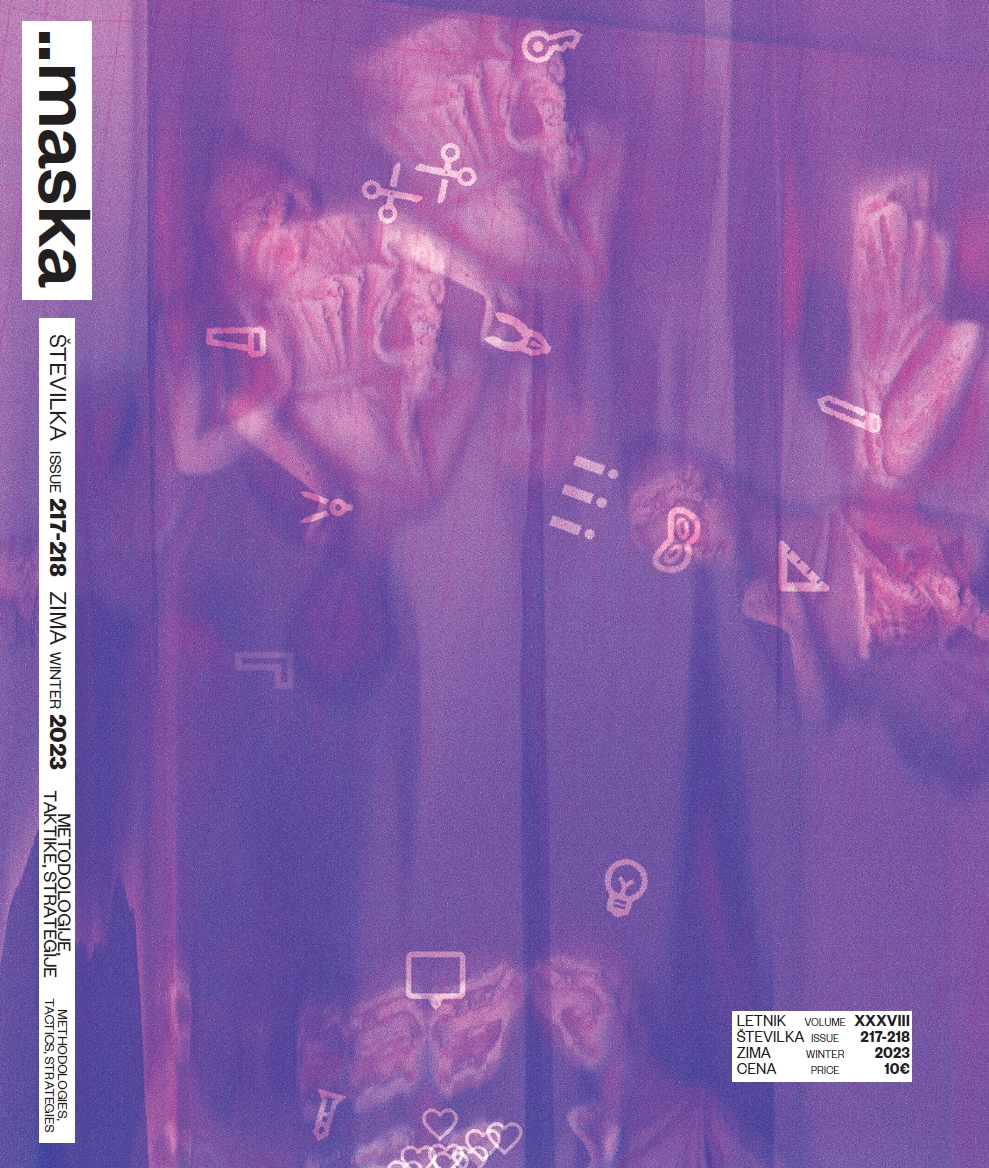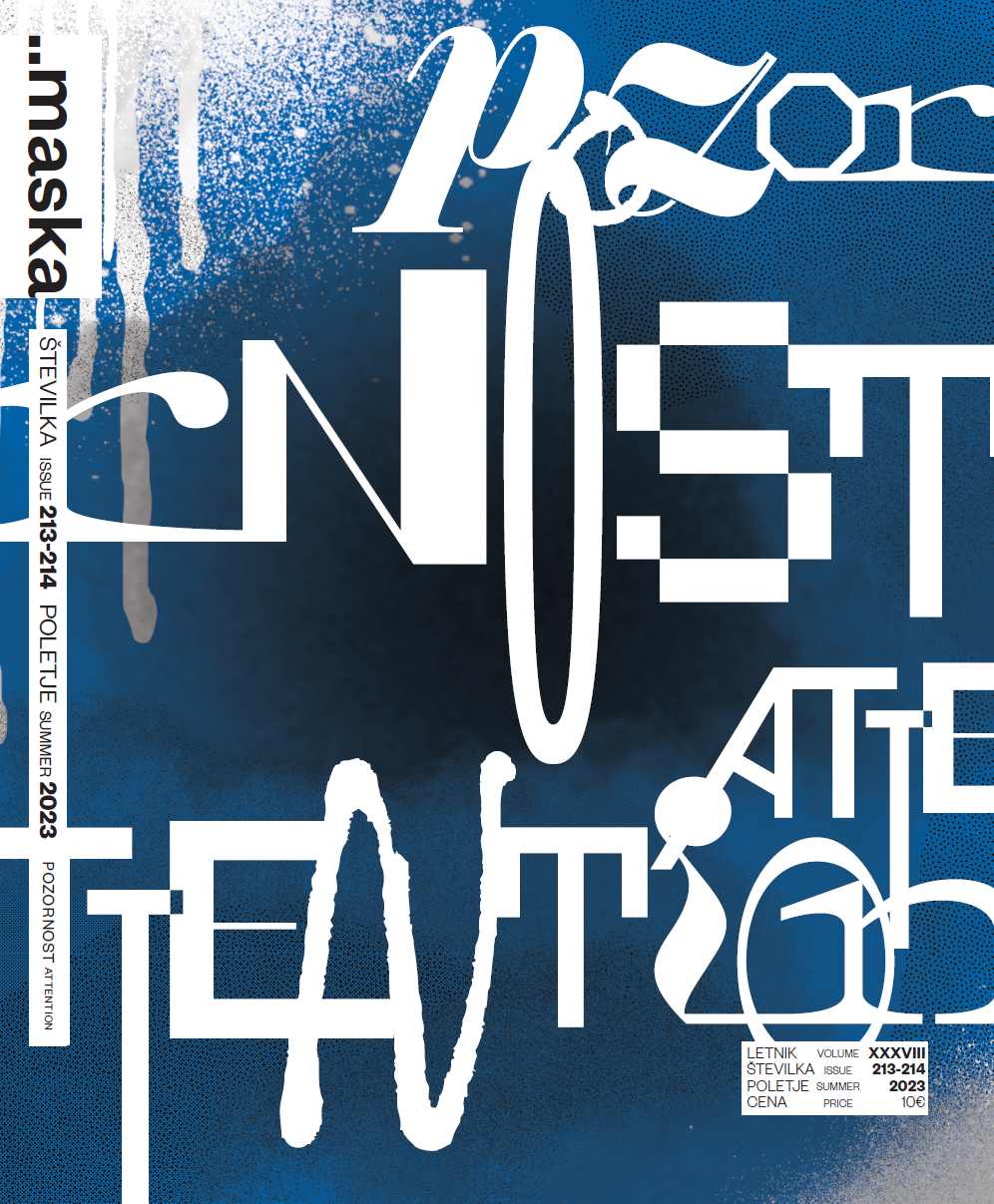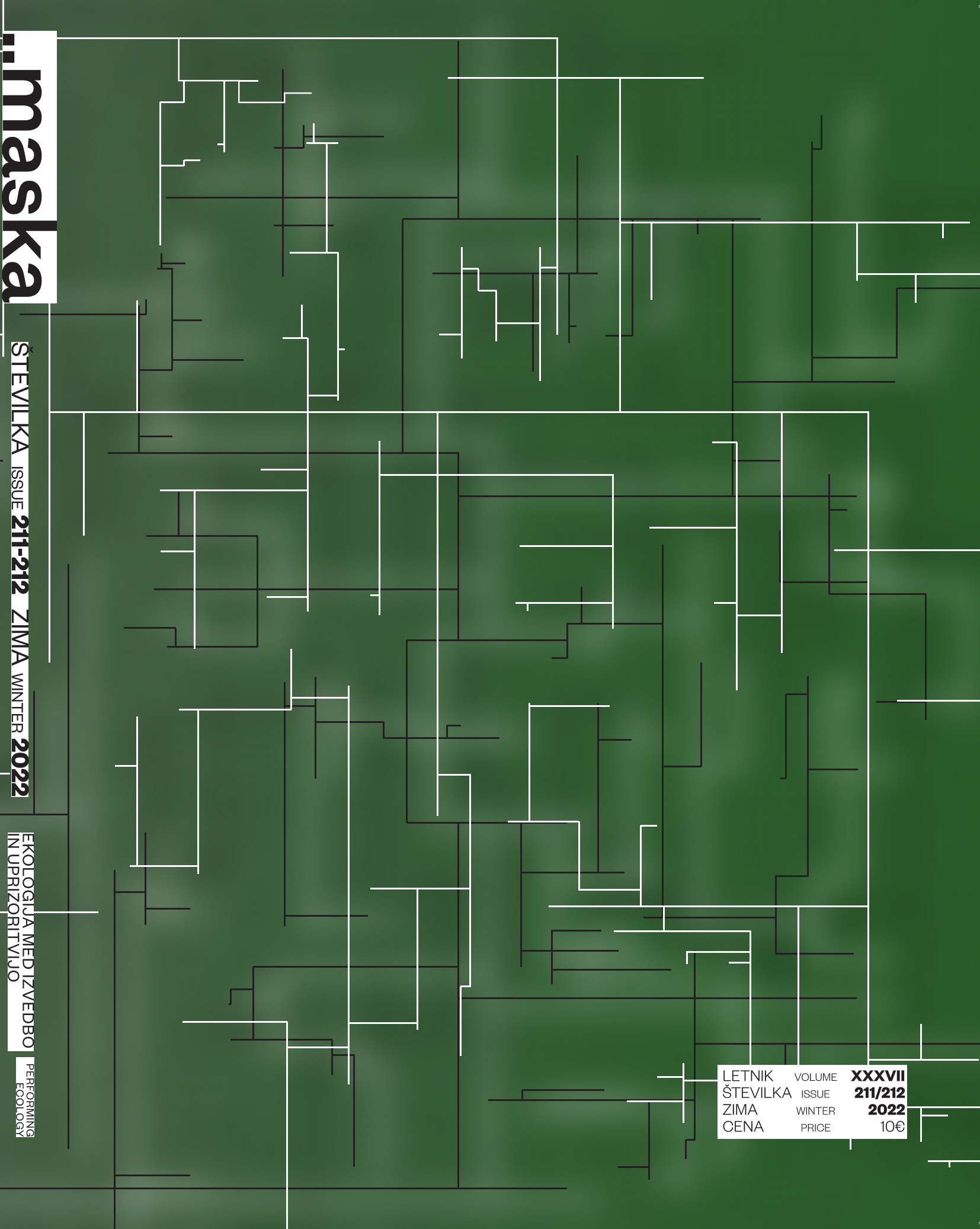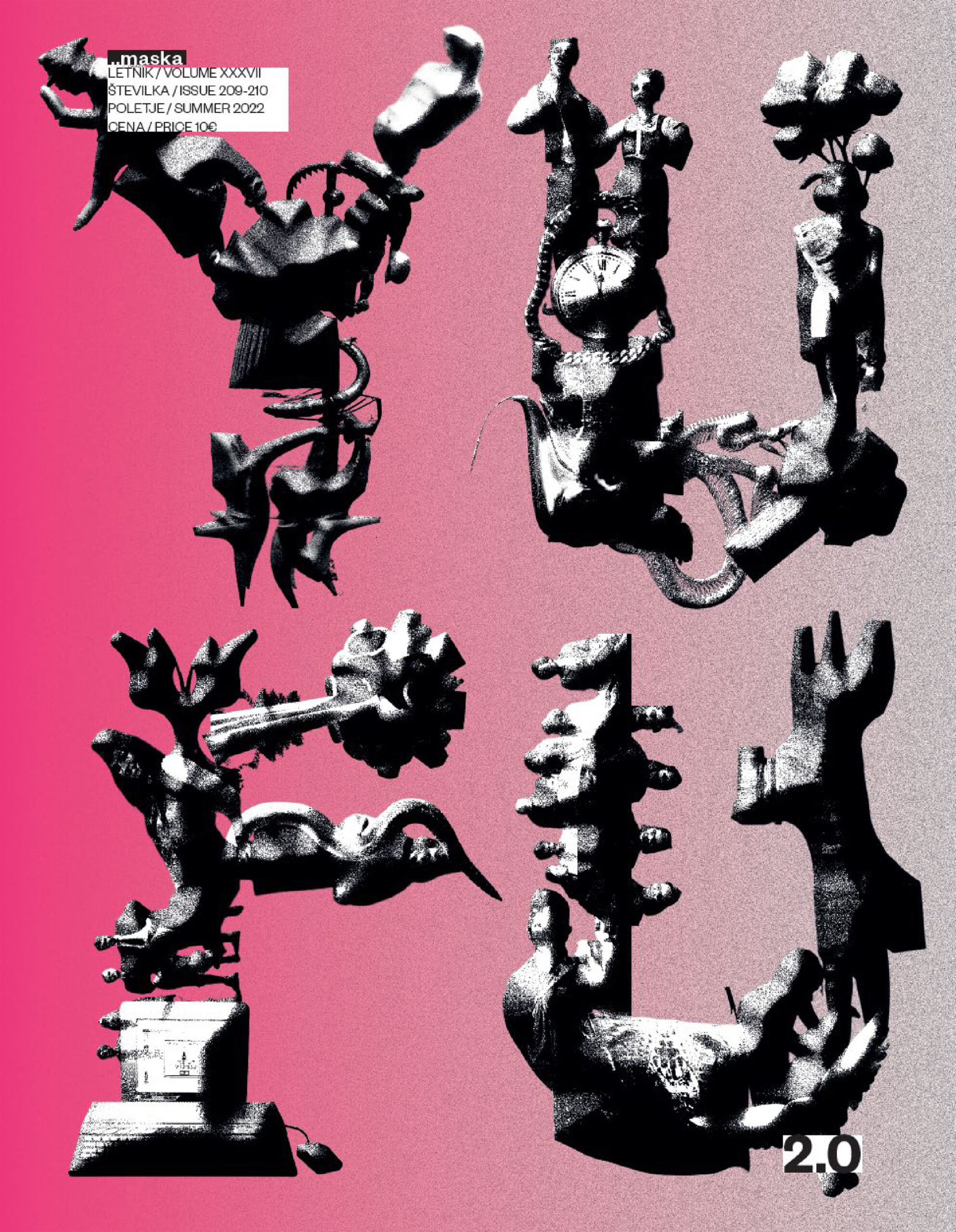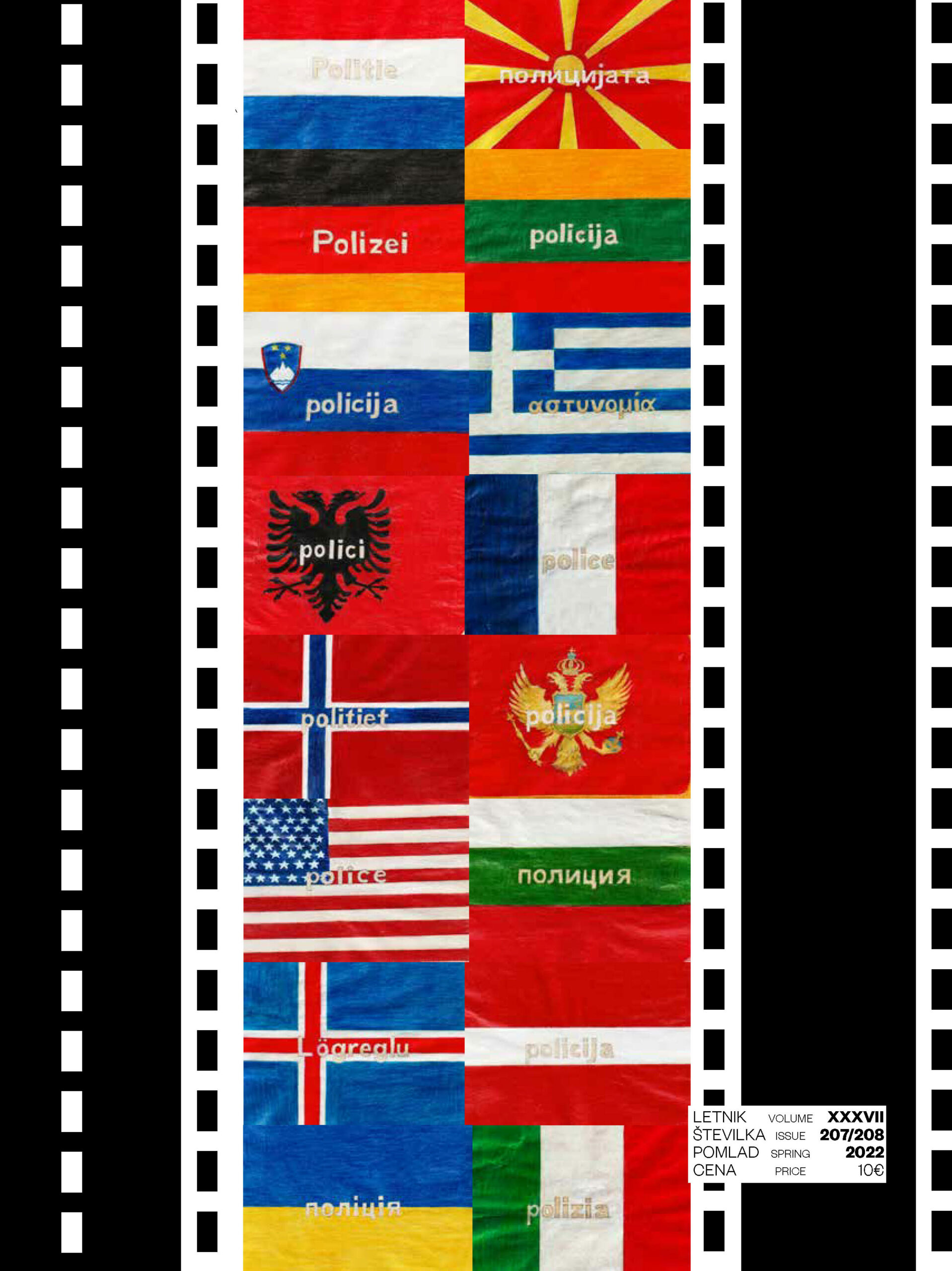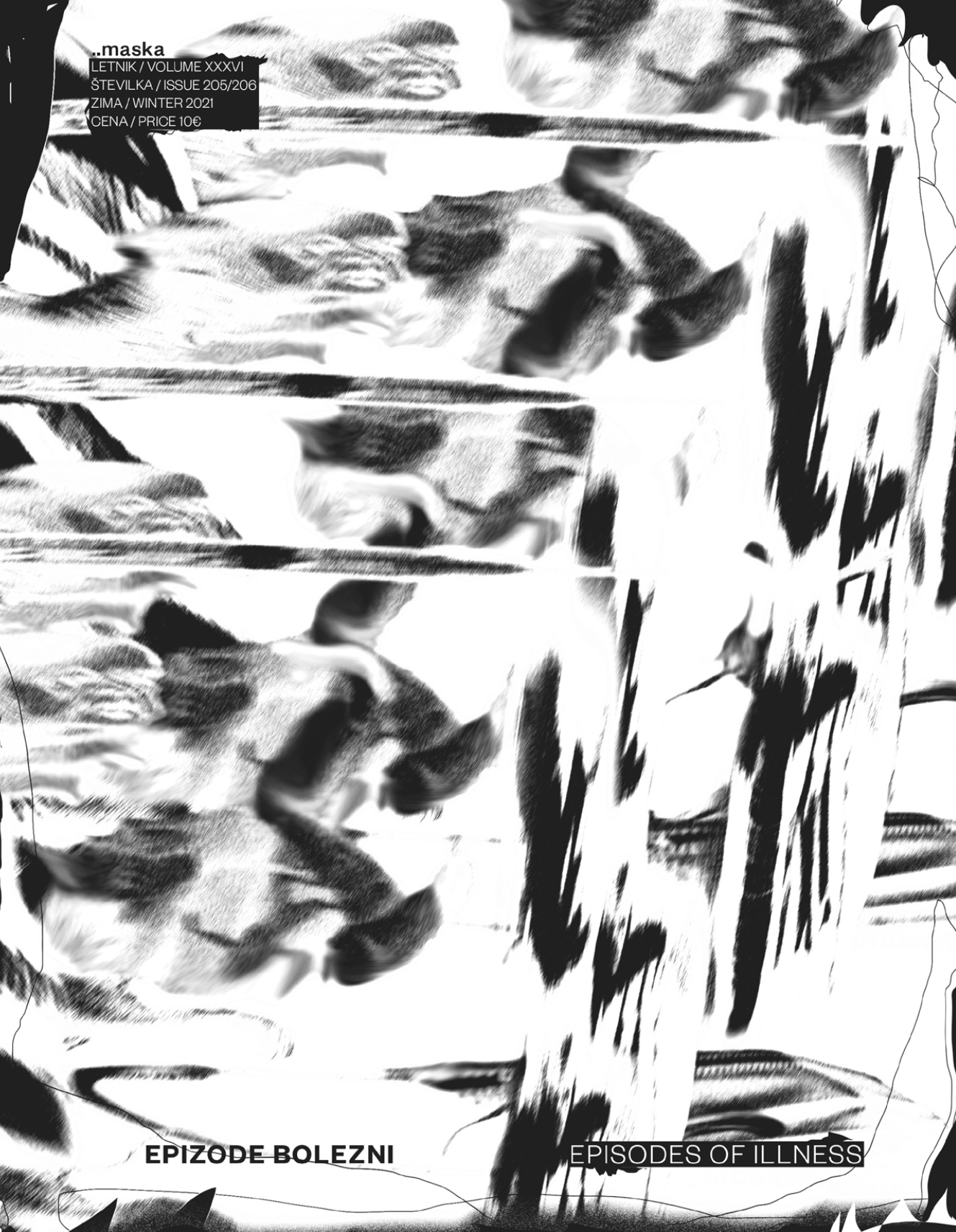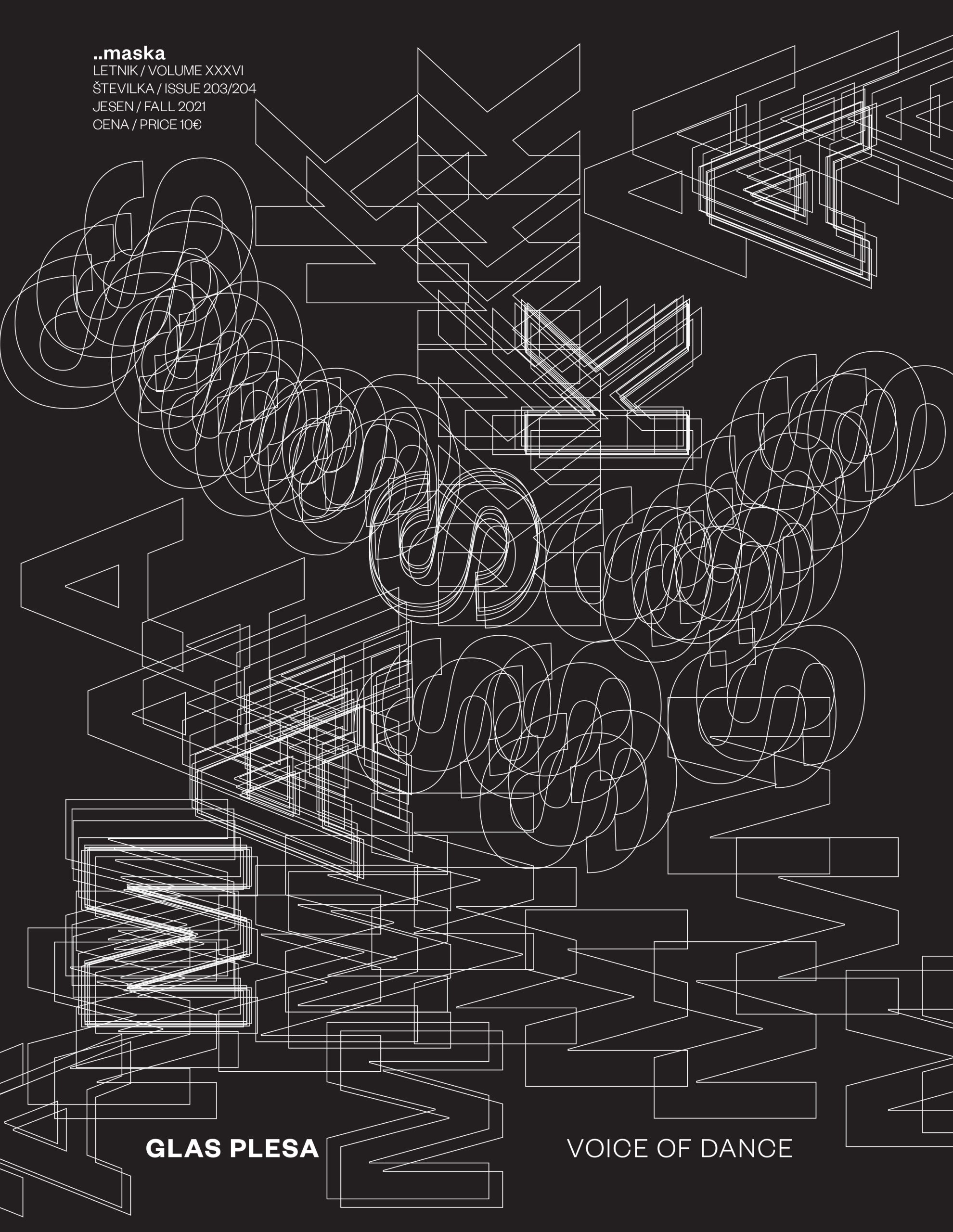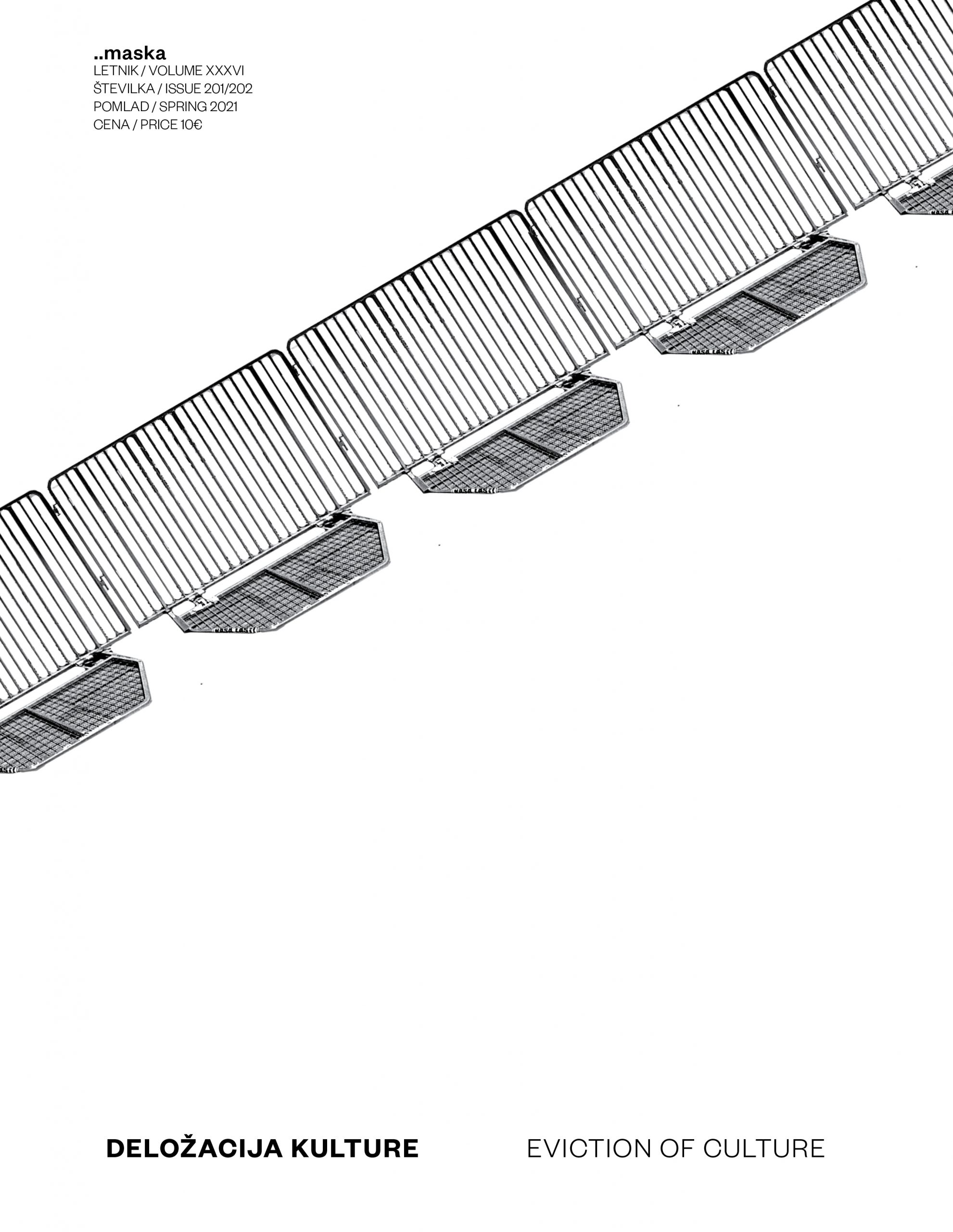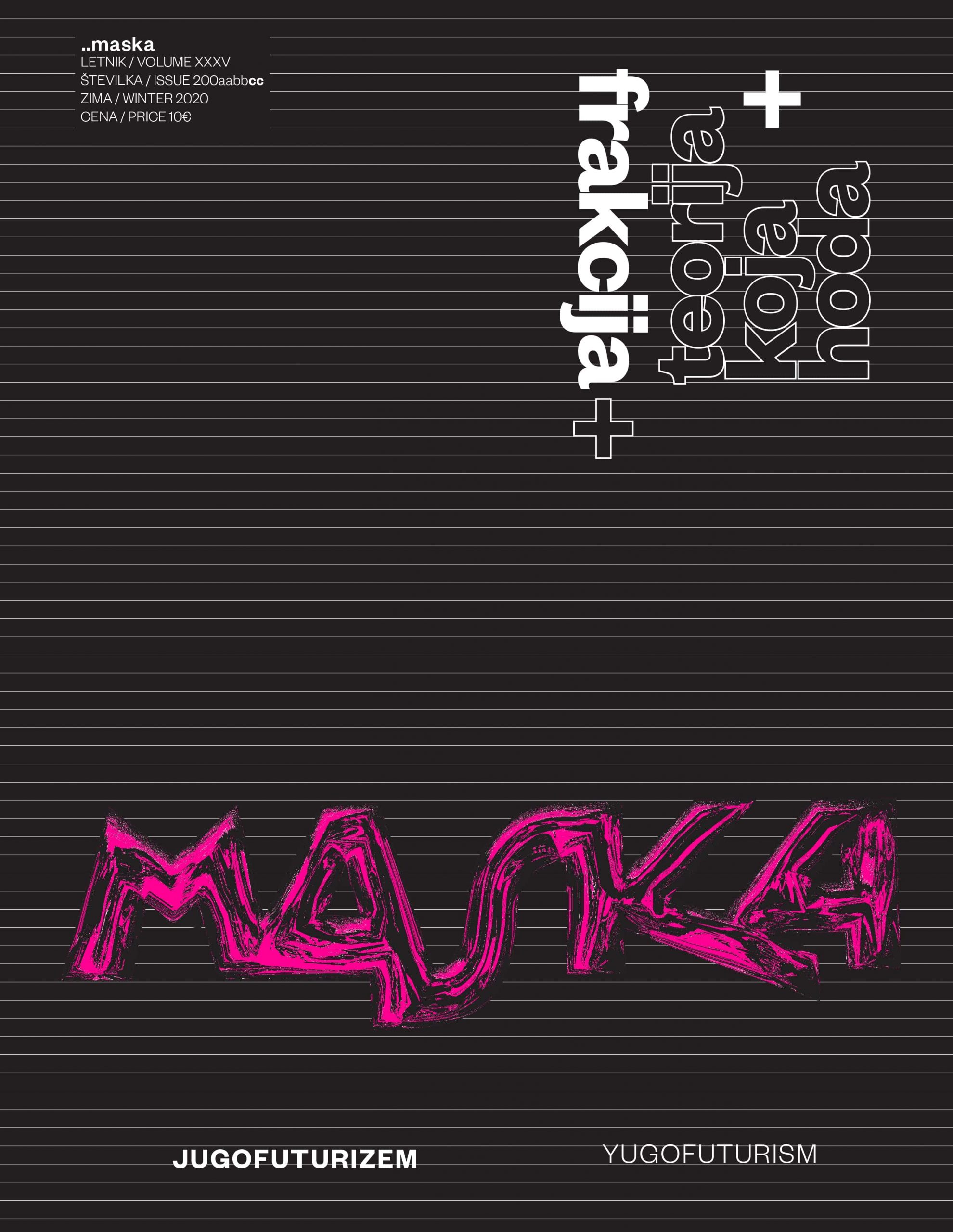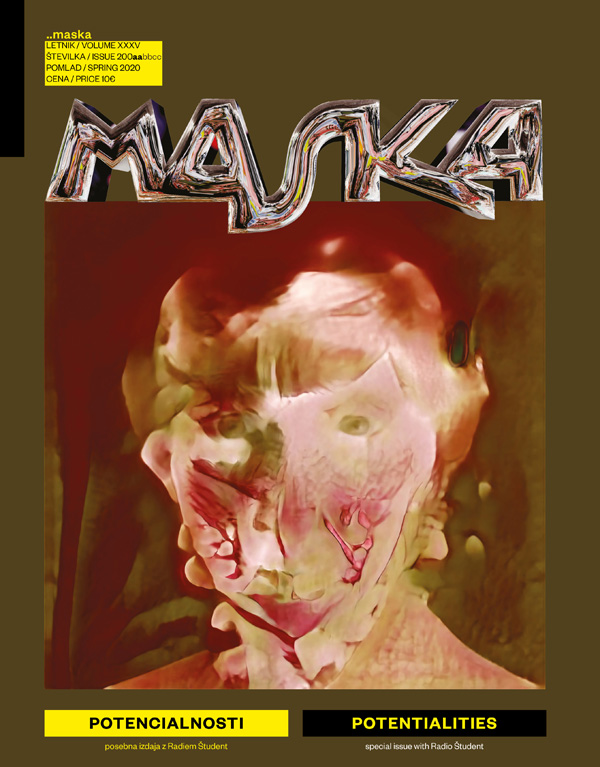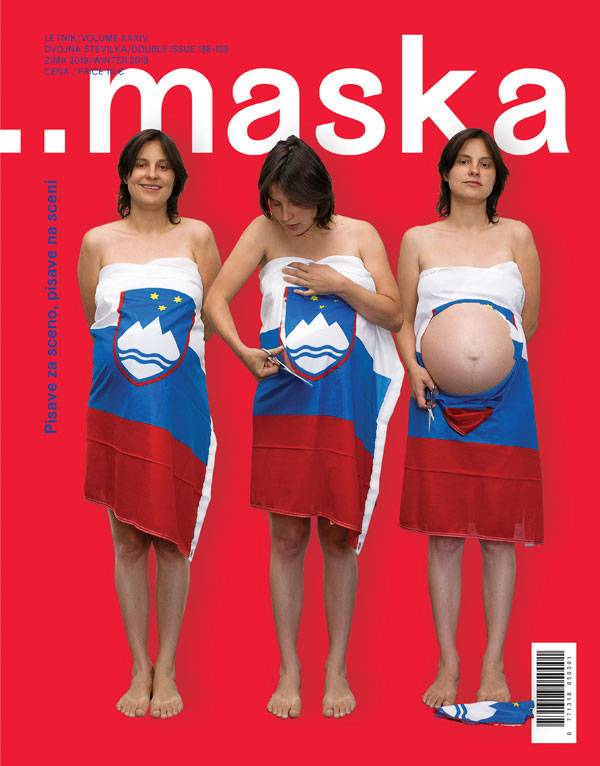Spaces

An individual or a group of people with a space to live in and create, where they don’t fear eviction and, at the same time, where others are welcome too, feel good in their community; they feel heard and at home. This is a space of learning how to live together and negotiate the community’s shared values, what society is and what it can become. A space that accepts us and that we are a part of, that shapes us, gives us integrity and, last but not least, gives us a sense of belonging and the possibility of positioning that we, the dispossessed, as eternal guests or individuals not yet or no longer belonging to the space, do not have.
Volume XXXIX., issue 219—220 (Spring 2024)
Editor: Pia Brezavšček
Publisher: Maska
Design and layout: Niko Lapkovski
Spaces are not just the apartments in our capital city, which are becoming increasingly inaccessible for living and increasingly accessible for investment and tourist rentals. Spaces are not just the cultural infrastructure, often run by founders and managers with private rather than public interests. Spaces are all around us: the spaces of squares, neighbourhoods, streets and unoccupied buildings. Forests and mountains. They are zones that make us feel free, which is becoming more and more impossible in the monitored, privatised spaces of the city’s neoliberal infrastructure. Such spaces are also parks, which are the topic of the performance Circle by Neja Tomšič and the Nonument group. In this edition of Crumbs from the Scene, the author expands the performance text with notes from the process of study.
Loss of space is always a major blow to the integrity of an individual, group or organisation. After seven years of activities at Nova Pošta, this was also the fate of the Maska Institute, which sees this intervention as an act of authority. This, in light of current management reshuffles in certain public institutions that run spaces and the establishment of new art institutions still without designated physical spaces, has led us to reflect on the importance of space.
It is also the result of the progressively unpleasant living situation in the city, where the local authorities are feudalising public space with seemingly soft, but persistent measures, appropriating it in the name of order and peace, as Tomaž Zaniuk points out in his analysis of legislation-based noise limitations. A sense of loss is also highlighted by Eva Matjaž, who believes that “the most beautiful city in the world” has been abducted, turistified and gentrified slowly, almost imperceptibly and with little resistance, thanks to the clever marketing campaign of the local authorities and their greenwashing. Drawing from graffiti art in the neighbourhood of New Belgrade, where this is perceived not as vandalism but an accepted and valued practice by the community, anthropologist Sara Nikolić writes about gentle privatism as a strategy for fighting against the privatisation of public space, changing into a regulated, soulless sterility. This issue of Maska also features the republication of an excerpt from the book Modelling Cultural and Art Institutions (2021) by North Macedonian cultural worker Biljana Tanurovska-Kjulavkovski, who presents examples from her hometown of Skopje to map development tactics and strategies of the independent cultural scene applicable to the Slovenian or perhaps any other environment. In its uncontaminated form, independent culture can be the driving force for progressive social development and advocates freedom, acceptance and creativity, therefore itself belonging to the public sphere. As such, it has little value in capitalist society; its advocacy is in a precarious position and it is often defeated by other, private capital interests.
We feel excluded and played, less and less at home in our occupied spaces. And this feeling has reached those of us living in urban centres of the West with a delay. The merciless, exploitative, extraction logic of capitalism has long been pillaging the resources of fringe spaces, not visible to the gaze of a Western consumer. A desolate space robbed of its resources, turning into a monstrous and foreign place, is therefore also transforming the native bodies intertwined with it. And in turn, the alienation of urban space turns us, its residents, into monsters, zombie consumers or unwanted paupers. Zuzanna Berendt gives a few international examples of contemporary dance pieces, in which this alienation of space is reflected in bodies.
The fight for an uncontaminated and free public space is thus the fight of each and every one of us for a place under the sun. Let’s take it.
(Editor Pia Brezavšček)
Table of Contents
ZUZANNA BERENDT
Entangled Places of the Anthropocene – A Journey
TOMAŽ ZANIUK
Feudalisation of Open Public Space
EVA MATJAŽ
Tales Tall of a City Small
NEJA TOMŠIČ
Around Circle
SARA NIKOLIĆ
Beyond Vandalism: Gentle Privatism and the Graffiti Code of Conduct in Block 45
BILJANA TANUROVSKA KJULAVKOVSKI
New Tactics and Strategies for the Development of the Independent Scene
- WWW.NEODVISNI.ART
MIŠA GAMS
What is the Dark Matter, its Gravitational Pull and Why it Compels us to Move?
JAKA BOMBAČ
Revising or Repeating Conventions?
